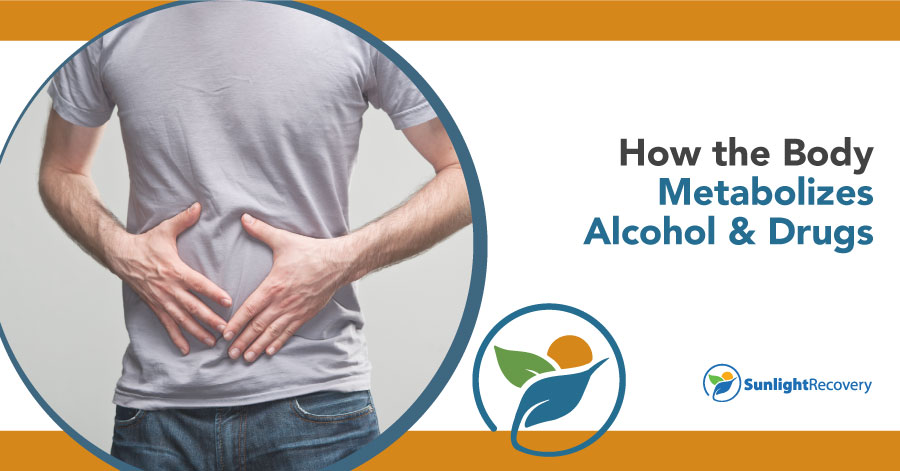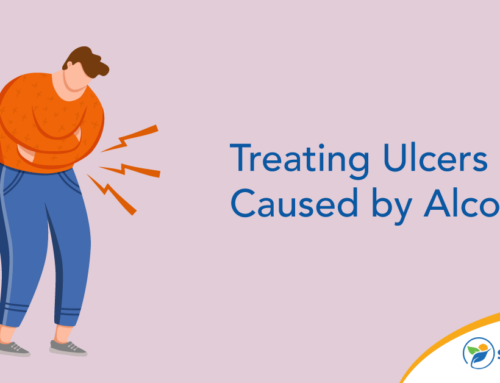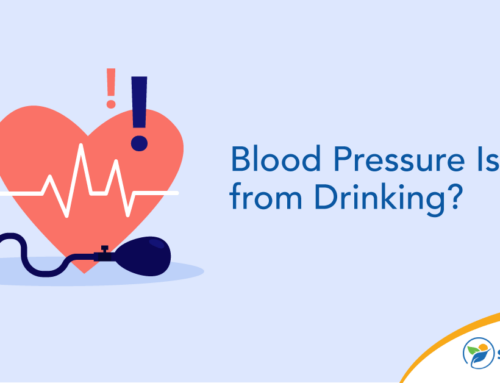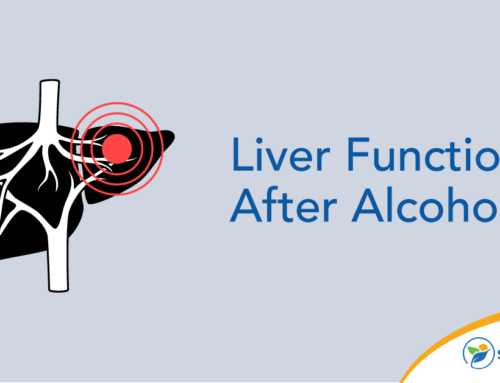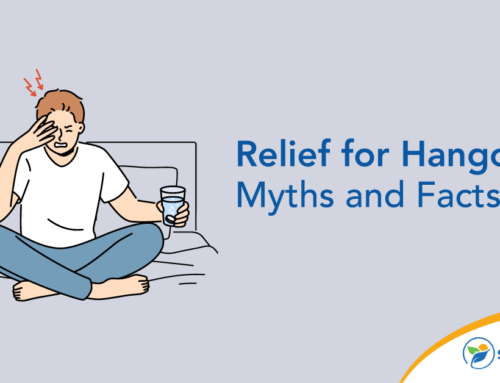Updated August 4th, 2023
What Is Alcohol, Chemically?
While there’s an enormous range of intoxicating drinks made at different strengths and with varying flavors and colors, they all have one thing in common: They contain ethyl alcohol. This organic compound is a by-product of yeast fermentation, an essential process during the production of alcohol. Wine, for example, is derived from fermented grapes, while beer is brewed from fermented grains and the flowers of hop plants.
Ethyl alcohol is commonly known as ethanol. It’s this specific liquid element in alcoholic drinks that causes intoxication. Ethanol is fluid, colorless and flammable, mixing readily with water and other liquids.
What Is the Chemical Structure of Alcohol and How Does the Body Break It Down?
Ethanol (H3C-CH2-OH) is broken down by the body via several pathways. The main pathway involves the use of two enzymes: alcohol dehydrogenase (ADH) and aldehyde dehydrogenase (ALDH). First, ADH breaks down the ethanol into acetaldehyde (H3C-CH=O). Then the aldehyde dehydrogenase breaks the acetaldehyde into acetate, which is then broken down into water and carbon dioxide so it can be excreted from the body.
What Happens When Alcohol Enters Our Body?
As you drink alcohol, it quickly enters the bloodstream and starts circulating in your body. First, the blood vessels around your mouth and tongue immediately absorb a small percentage of the alcohol.
Next, about 20% of the liquor absorbs into your stomach, though this varies depending on whether you’ve eaten anything beforehand. The fuller your stomach is, the greater the amount of alcohol metabolized there.
A specific enzyme present in the stomach lining, alcohol dehydrogenase (ADH), breaks down some of the alcohol before it moves into the intestines. It also occurs in the liver, where most ethanol metabolization occurs.
What Percentage of Alcohol Is Absorbed by the Small Intestine?
The amount of alcohol metabolized in the stomach varies due to several factors, including height and weight. However, a consistent figure of between 75% and 85% of alcohol absorbs through the small intestine into the bloodstream. When ethanol enters the circulatory system, the liver instantly starts metabolizing it.
How Quickly Are the Effects of Alcohol Felt?
When planning to consume a few alcoholic drinks and avoid becoming drunk, you need to pace yourself. It’s helpful to ask: How many minutes does the body need to process alcohol? After consuming a drink, effects are noticeable within five to 10 minutes. The blood alcohol concentration (BAC) reaches maximum levels between 30 and 90 minutes after consumption.
What Organ Processes Alcohol?
We know some alcohol is absorbed by the small intestine, but what organ processes alcohol? That job falls primarily to the liver. Other organs, including the brain, are also involved in the process of metabolizing alcohol, but the liver performs the majority of the task and is also the most likely to be adversely affected by the process. Acetaldehyde is a toxic byproduct of the process of breaking down alcohol. While it’s not present in the body for a long time, it’s a known carcinogen and has the potential to do a lot of damage if it remains. The liver quickly breaks down acetaldehyde into the less toxic acetate, which is then broken down into carbon dioxide and water.
Exposure to high levels of acetaldehyde can lead to some serious health consequences, including an increased risk of cancer and other long-term conditions:
- Alcoholic liver disease: About 90% of people who drink heavily develop fatty liver disease, and 20% go on to develop cirrhosis.
- Alcoholic pancreatitis: The pancreas processes alcohol, but not to the same extent as the liver. Just under 10% of heavy drinkers develop pancreatitis.
- Fetal alcohol syndrome: If alcohol is consumed during pregnancy, this can be harmful to the fetus.
How the Liver Metabolizes Alcohol
As blood passes through the liver, it’s filtered and toxins removed. The liver metabolizes approximately 80% to 90% of ethanol present in the body from drinking. Two primary enzymes are involved in this metabolic process — ADH and aldehyde dehydrogenase (ALDH). First, ADH converts ethanol into acetaldehyde, which is a toxin. Then, ALDH converts the toxin into acetic acid, an element readily used by the body.
After the ethanol is broken down, it’s expelled through your breath, skin and urine. Up to 8% of alcohol is breathed out. This is how breathalyzer equipment can measure blood alcohol levels. After that, the kidneys do the work of filtering the blood and removing the waste elements into the urine.
How Long Does It Take the Liver to Process Alcohol?
Your liver breaks down alcohol at an average rate of one standard drink per hour. Fourteen grams of pure alcohol equates to one standard drink in the U.S. However, this rate of metabolization can vary significantly between individuals. Alcohol tolerance levels are affected by factors that include height, weight, genetic inheritance and gender.
For example, comparing women and men’s metabolizing rates shows significant differences. In general, women get higher BAC levels than men, even if they ingest the same volume of alcohol. The fact that women generally have slower metabolisms than men, along with lower muscle mass and higher fat ratios, is the cause of this difference.
What Absorbs Alcohol Into the Body Faster?
The liver processes alcohol faster than other organs, but there are limits to how quickly it can metabolize alcohol. The rate at which a person can absorb and process alcohol is genetic and will be affected by the size of their liver and the levels and types of ADH and ALDH enzymes they have in their bodies. Fast-acting ADH enzymes or slower-acting ALDH enzymes can lead to a build-up of acetaldehyde in the body when a person consumes alcohol.
Excessive acetaldehyde can lead to facial flushing, nausea and an elevated heart rate. People who experience these side effects tend to find drinking large amounts of alcohol unpleasant and are less likely to be heavy drinkers. However, if they do drink, they’re at a greater risk of health issues due to being exposed to more acetaldehyde. In contrast, there are certain variations of the ALDH enzyme that are thought to be associated with a higher risk of alcoholism.
The human body has a superb ability to deal with toxic elements, including alcohol and drugs. However, drinking alcohol at an unhealthy level can damage a major organ — the liver. A crucial question to ask to avoid liver harm is: How long does it take the liver to process alcohol? This article describes how the body metabolizes alcohol and drugs, along with the crucial role played by the liver in the detoxifying process.
How Long the Effects of Alcohol Linger
How long does it take the liver to process alcohol? The answer can help you stay in control of your drinking.
As the liver can only metabolize one standard drink per hour, consuming alcohol above this rate will create a continually higher rate of blood alcohol concentration. So, if you have two standard-sized drinks in an hour, it’ll take the liver two hours to counteract the ethanol.
However, the effects of alcohol can linger in the body much longer than the time taken to metabolize it. Alcohol breath testing can detect that you’ve been drinking up to 24 hours afterward.
Urine testing can detect alcohol many hours after the last drink you’ve had — up to 48 hours after, in fact. More sophisticated testing methods can even reveal alcohol up to 80 hours after drinking. And alcohol and drug testing on hair samples shows traces up to 90 days later.
Long-Term Effects of Alcohol on the Body and Mind
There are many long-term health issues associated with regularly drinking alcohol. These include liver diseases such as cirrhosis, hepatitis and cancer that can turn deadly. The Centers for Disease Control (CDC) says “over 140,000 people die from alcohol abuse in the U.S. each year.”
It’s not just the damage done to health that should cause people to be wary of too much alcohol. Many workplace injuries occur due to alcohol and illegal drugs. For instance, tasks such as forklift driving require keen hand and eye coordination to avoid mishaps. Alcohol, of course, interferes with these physical requirements.
Chronic drinking can also damage the mind. It’s the key contributor to alcoholic dementia. Other known damage to the brain from excessive drinking includes memory problems, cognitive decline affecting the ability to focus and solve problems and even reduced verbal ability.
Reach Out for Help
If you’re concerned that alcohol or drug use is becoming an issue and interfering with how you want to live your life, talk to us at Sunlight Recovery. Our professional, discreet counselors understand the problems you’re facing and how to overcome them. Call us at (888) 402-3647 any time of the day or night. We’ll help get you back in control of your life.


